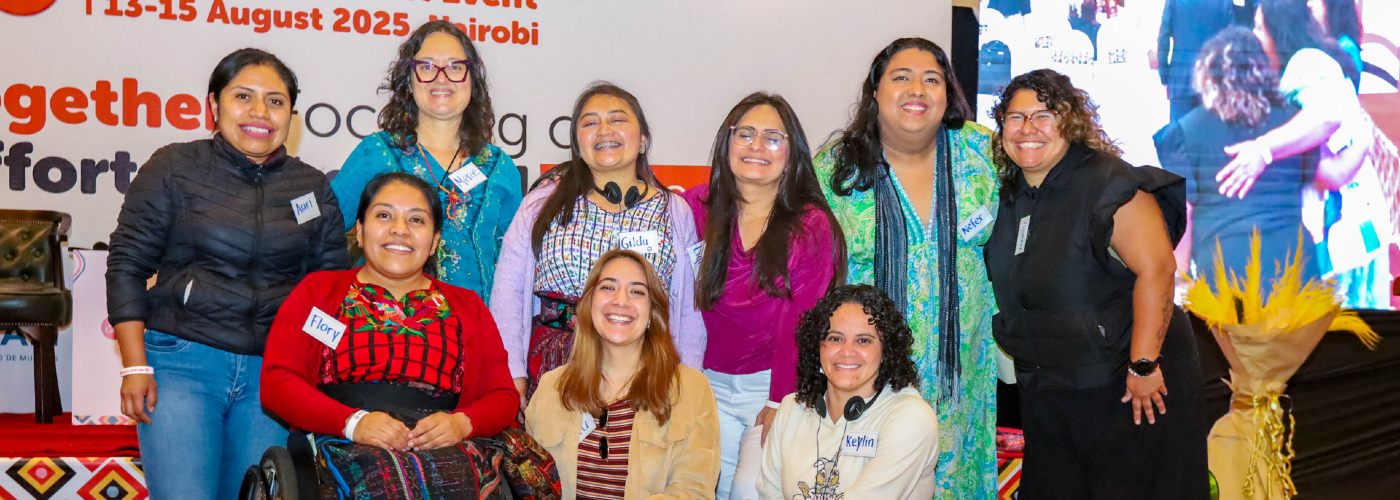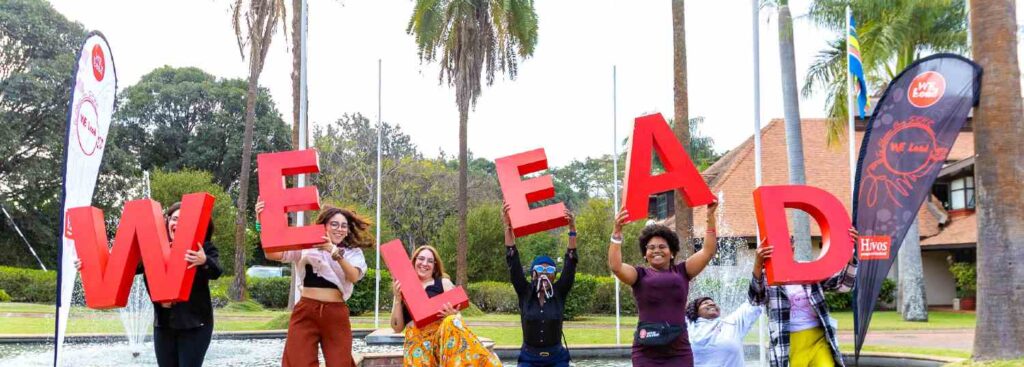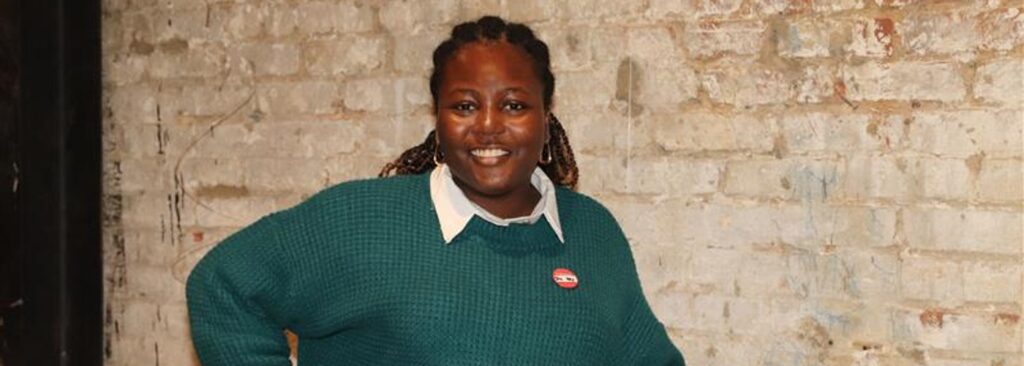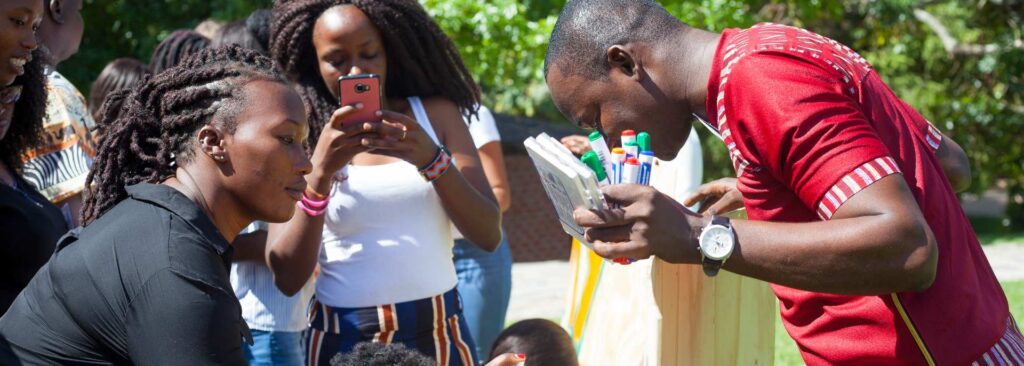As a young woman with a disability, Keylin Ivani Escalante Vargas has faced many barriers to education, employment and basic health care services. Joining the We Lead program was transformational for her because it gave her the tools to fight for her rights. Keylin is one of the Feminist 30 Under 30, a campaign that highlights the strong voices of the We Lead program. As a proud member of Colectiva Mariposa 88HN in Honduras, she is part of a growing movement of young women with disabilities fighting for recognition, inclusion, and sexual and reproductive health and rights (SRHR).
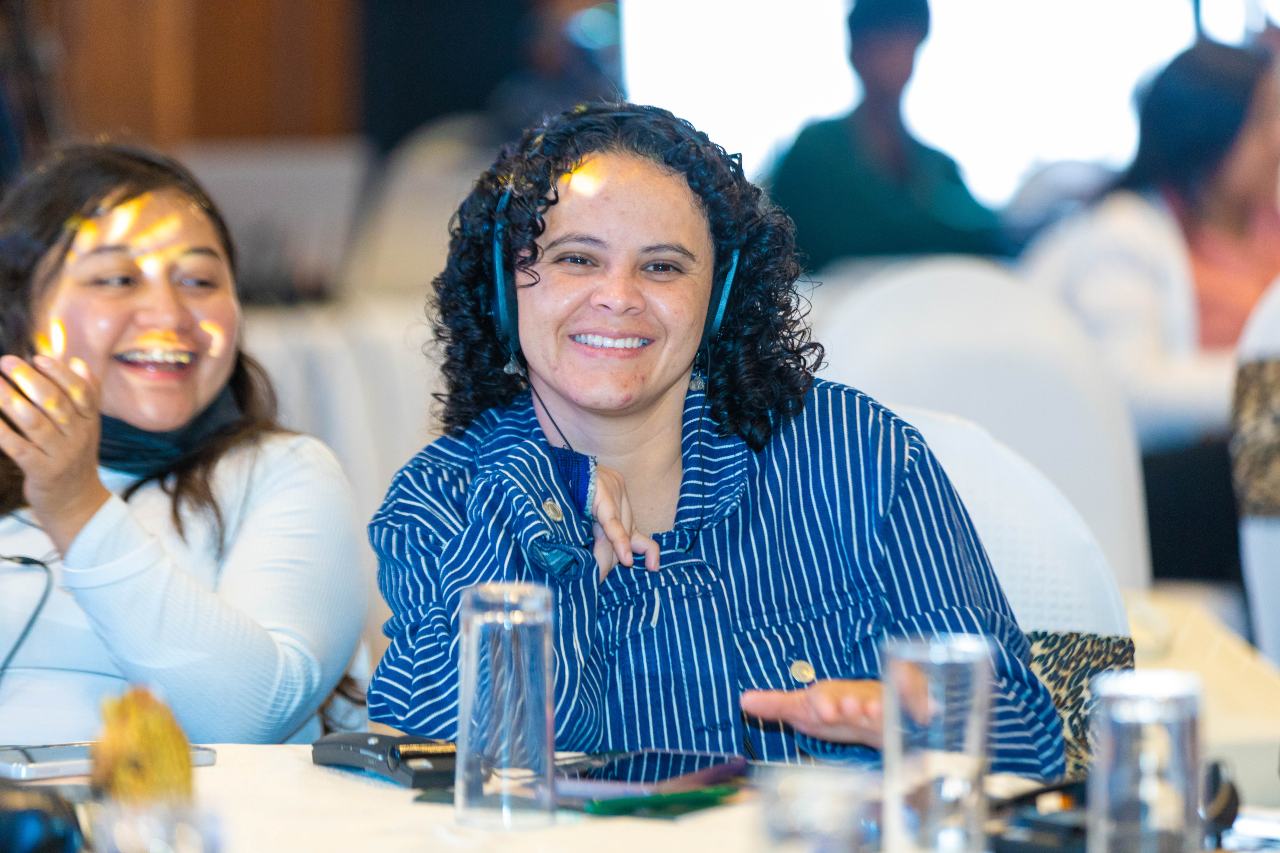
“I was scared when I first joined,” admits Keylin. “I had no work experience, and I knew nothing about SRHR. But everything changed when I became part of Colectiva Mariposa and We Lead. Now I feel stronger. I speak with other women, I share knowledge, and I’m not afraid anymore.”
Keylin was introduced to Colectiva Mariposa via Facebook in late 2018. Despite the onset of the pandemic shortly after, she remained engaged and eventually joined the group officially.
We are not angels, we are women with rights
Open conversations around SRHR remain rare in Honduras, especially for women and girls with disabilities. “As women with disabilities, it’s still hard to talk about these topics—even with our own families,” says Keylin. “Some people see us as ‘special’ or like we’re angels, not as women who can have relationships or families.”
This social stigma reinforces isolation and misinformation. Through We Lead, Keylin began learning about her rights, how to care for herself, and most importantly, that her voice matters. “I’m emotional just thinking about it,” she says. “I never thought people would listen to my story.”
Keylin describes being selected as one of three representatives in a research project on sexual and reproductive health and rights (SRHR) for women with disabilities, organized with Restless Development as her proudest achievement.
“I shared my own story, but I also reached out to other women, organized focus groups, and helped with surveys. It was my first time doing something like that,” she recalls.
Different countries, similar struggles
She has also participated in national and international workshops on self-care, political advocacy, and wellness. However, one milestone stands out: traveling to Thailand in 2022 to speak at the International Conference on Family Planning in Pattaya.
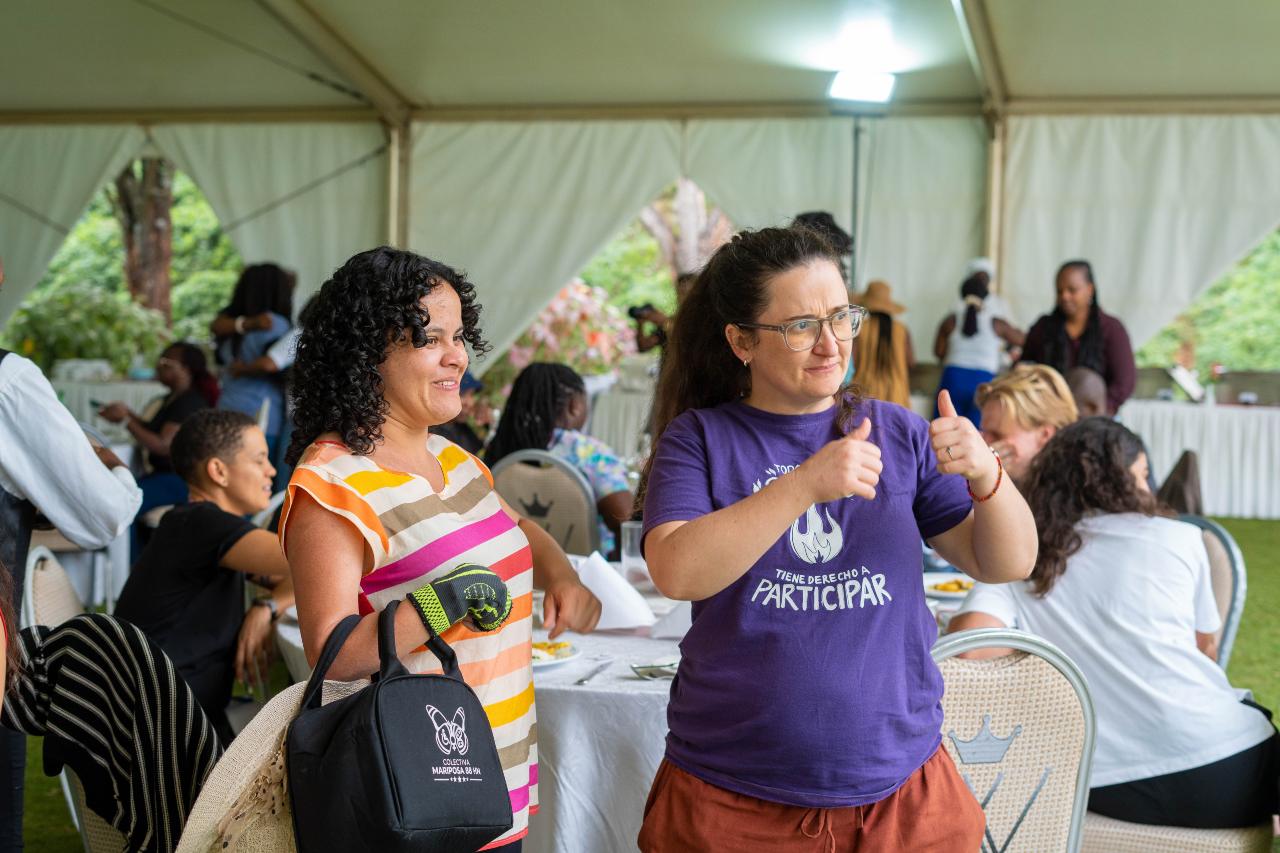
“It was the first time I left my country. I didn’t know how I would be treated, but it was incredible to connect with women from other countries who had had similar experiences,” she says. “I even got the chance to speak about the morning-after pill, and shortly after, the ban on emergency contraceptives was lifted in Honduras.”
Keylin speaks with pride about the We Lead Community of Action. “We support each other, and we also show up at events from other organizations. We want people to recognize us and the important work we do,” she explains.
“There was a time when I thought I’d never leave the house. Now, I come home and tell my family about the places I’ve been to and what I’ve learned. If I had to grade We Lead, I would give it a million out of ten.”
There’s more to fight for
Although personal growth is important, Keylin knows that systemic barriers still stand in the way.
“We need more than changes in law. We need protocols for how health care providers treat women with disabilities. We also need to address the discrimination in schools—children with disabilities that are often placed in special schools or turned away altogether.”
She shares the story of a colleague’s son who was denied access to school because of his disability. “This is still happening. It must change.”
Her message to everyone who has been part of her journey is clear: Thank you.
“I’m so grateful for the support I’ve received. Being part of this has changed my life. I hope other women like me can find spaces like this because we are not just ‘special people.’ We are women. We have voices. And we have rights.”

